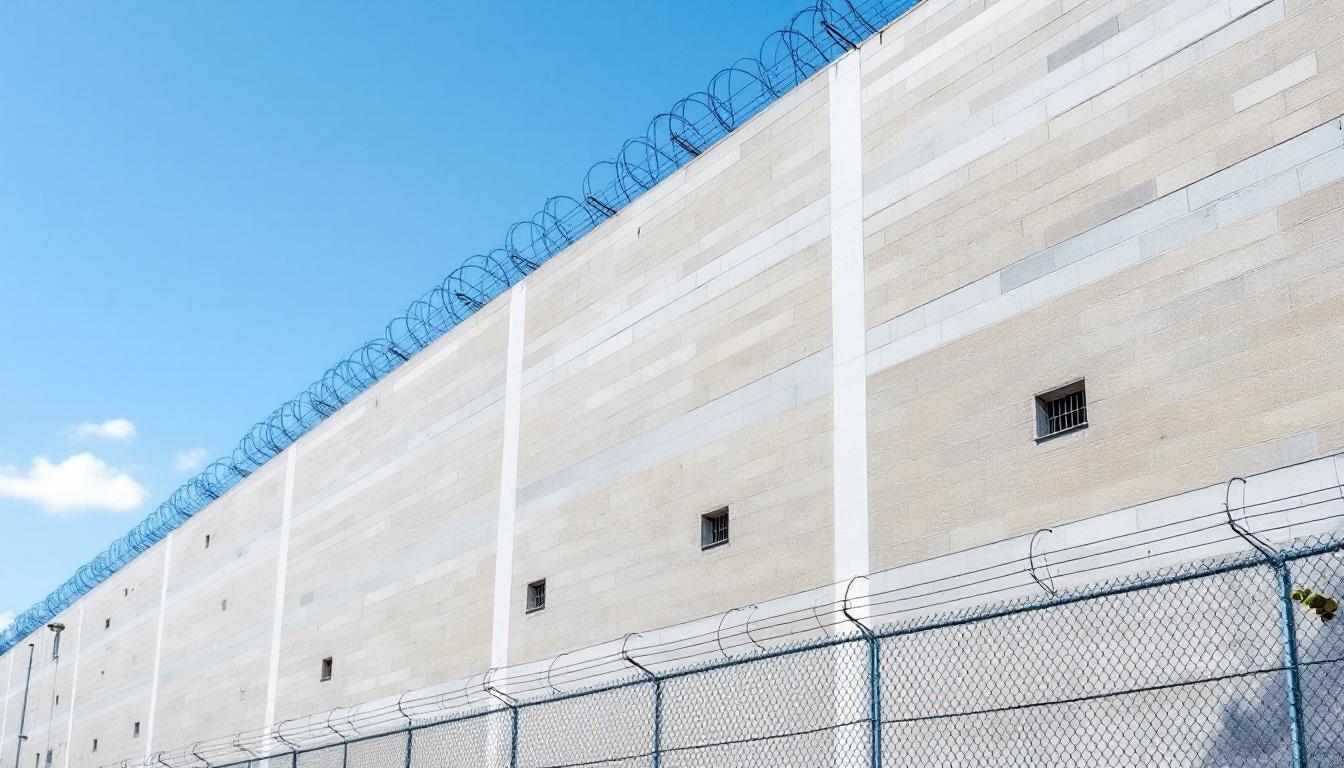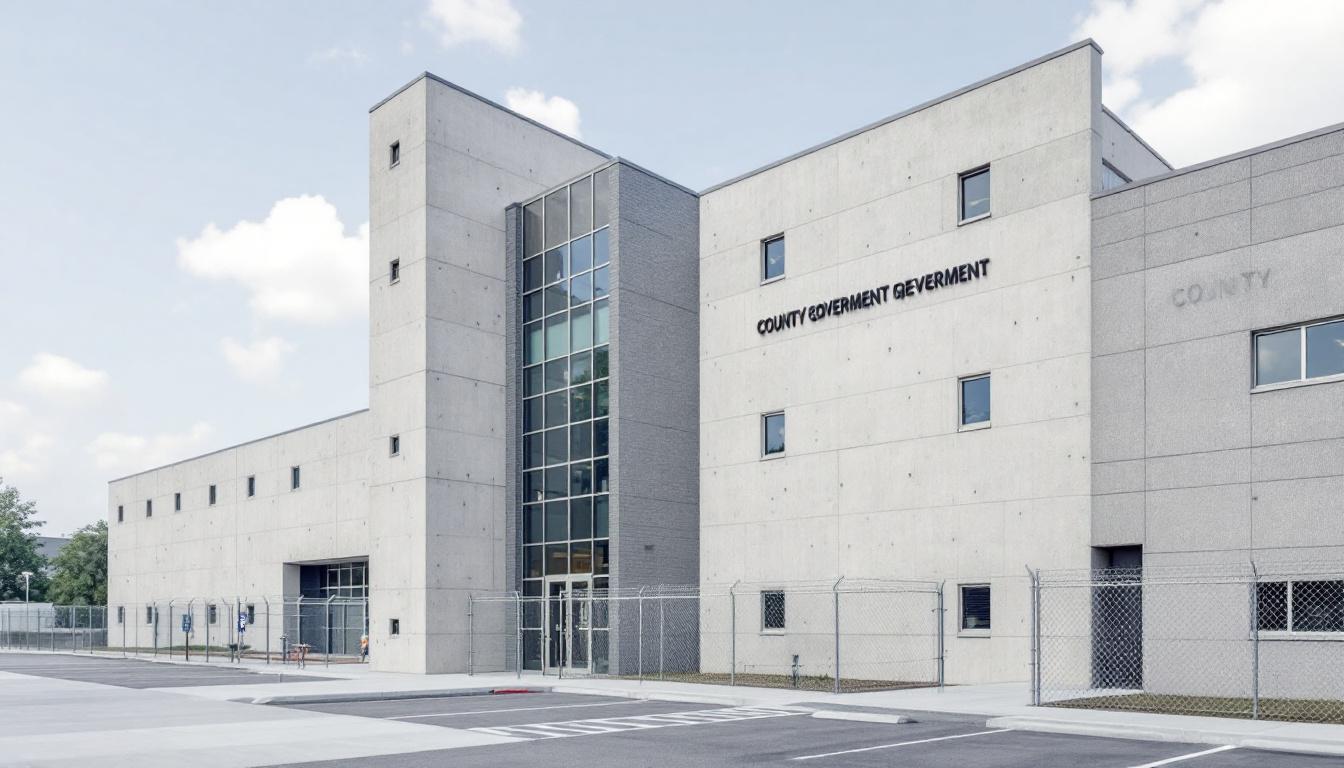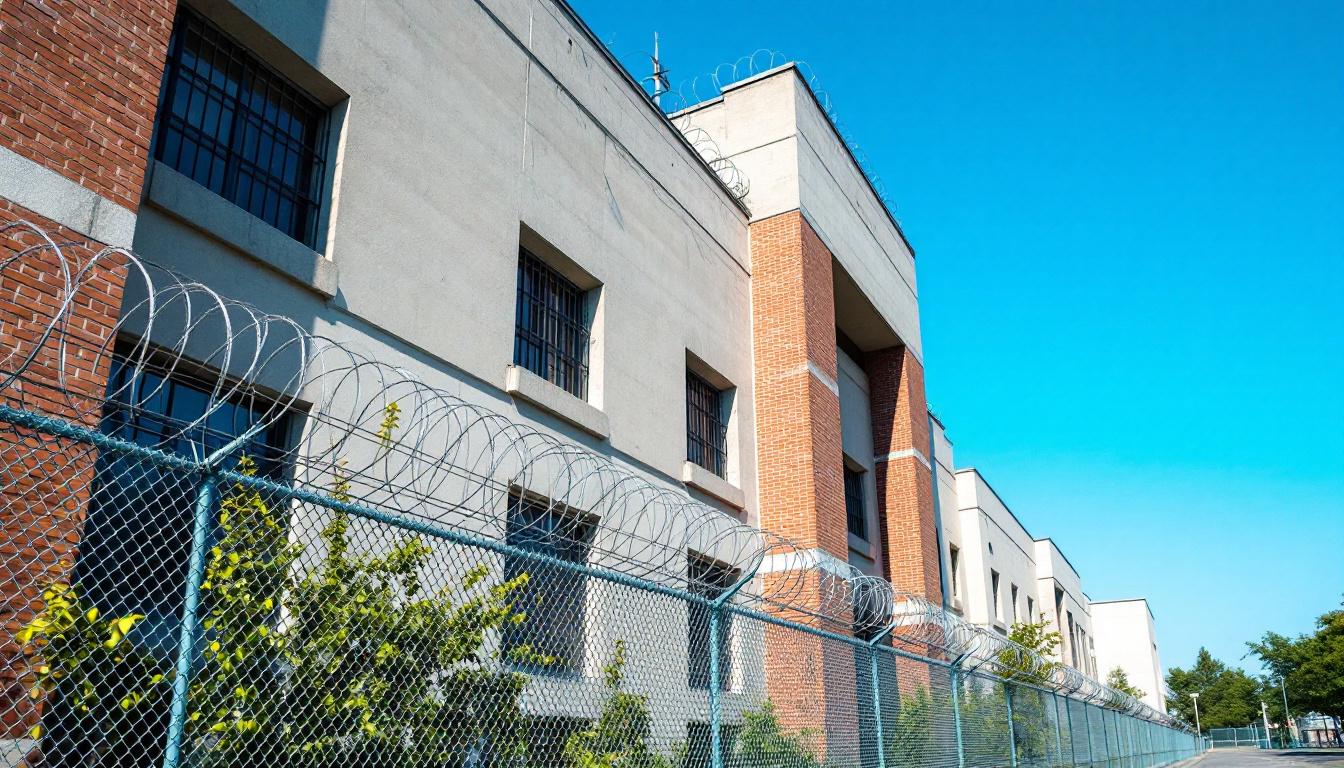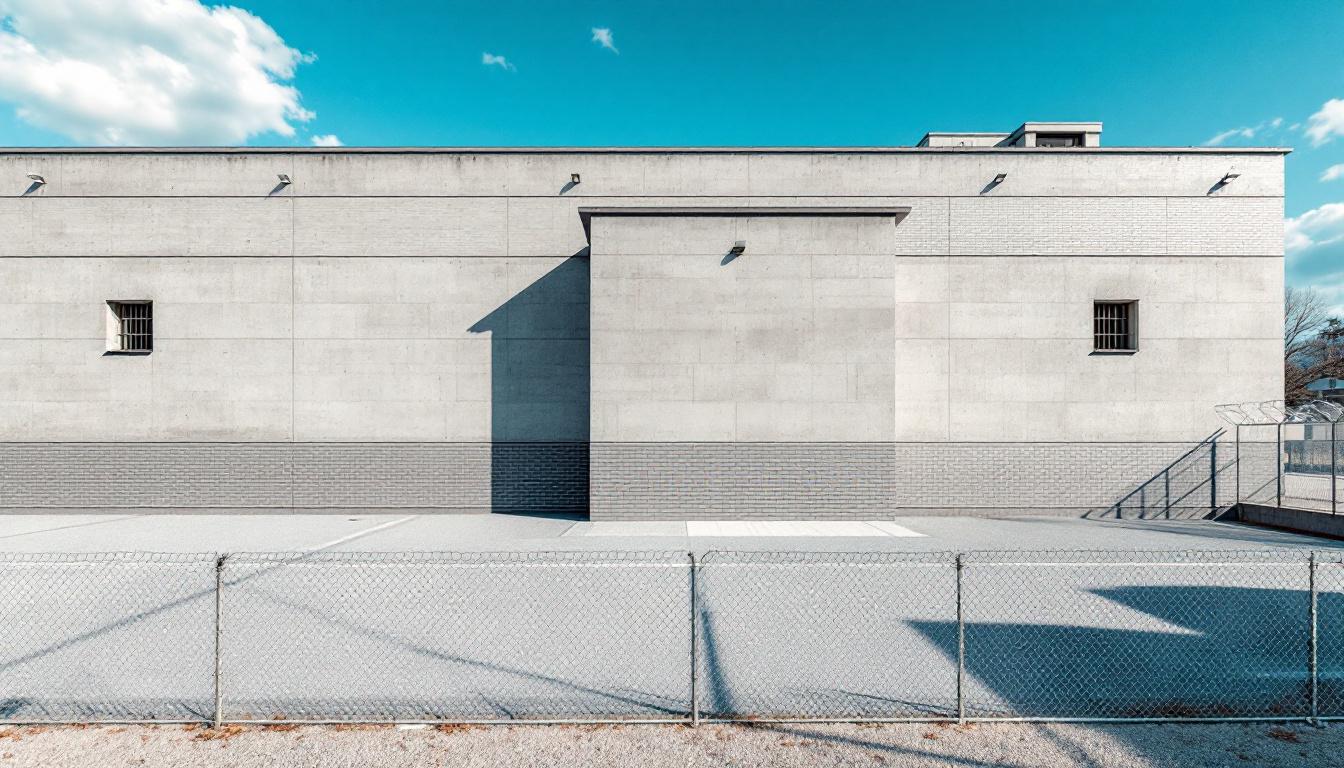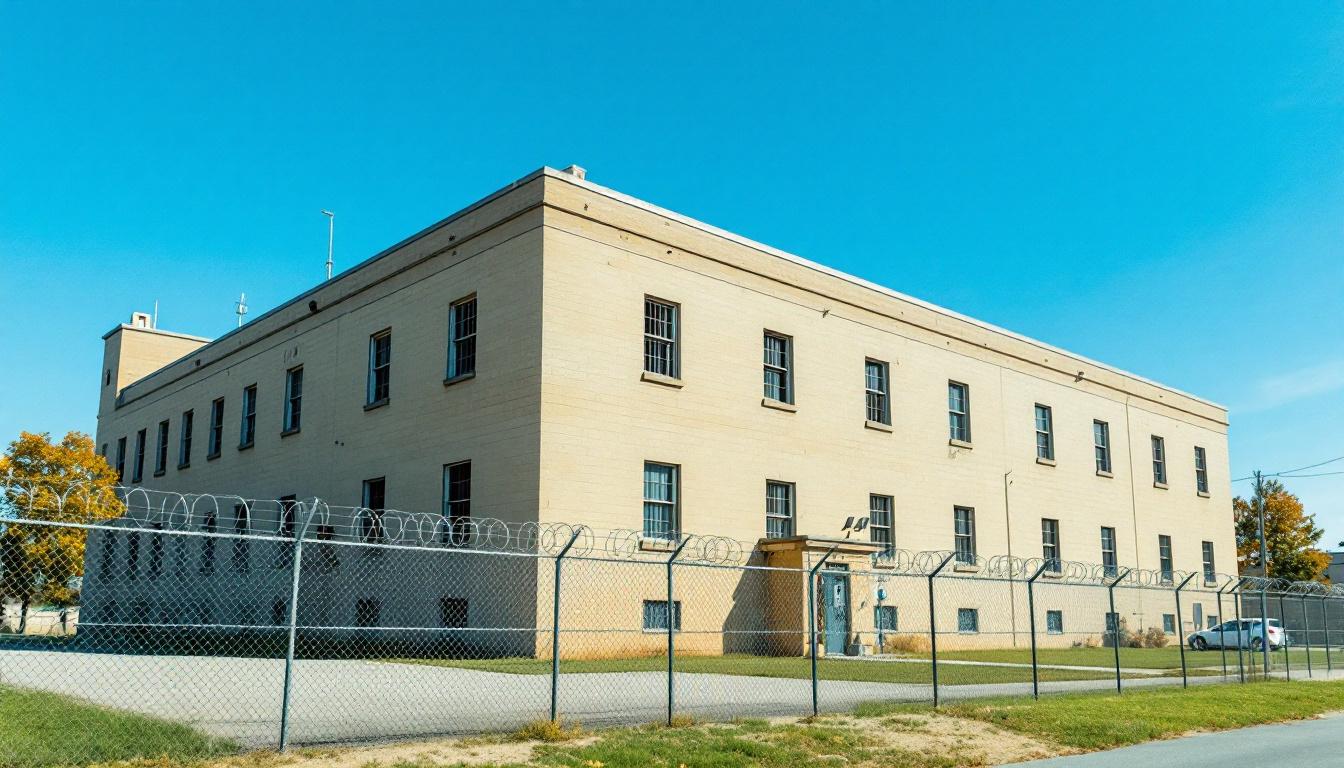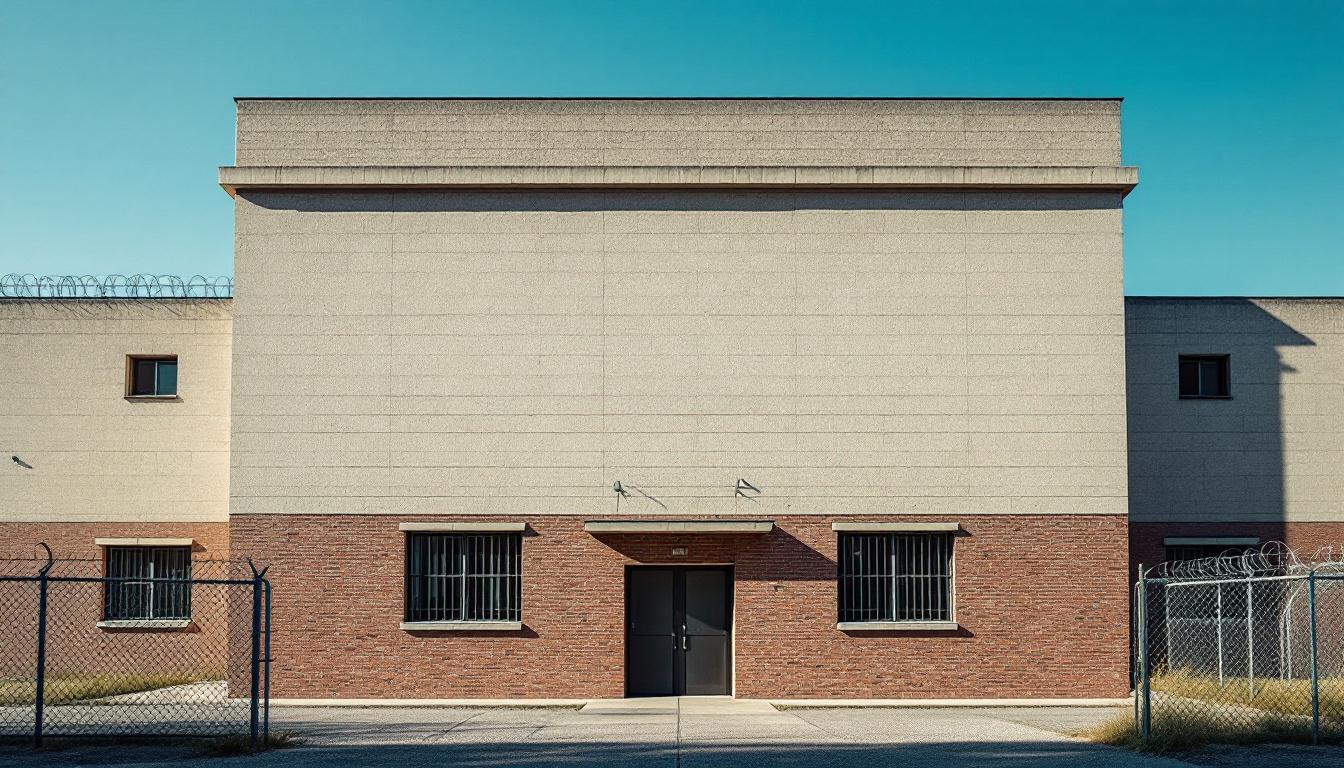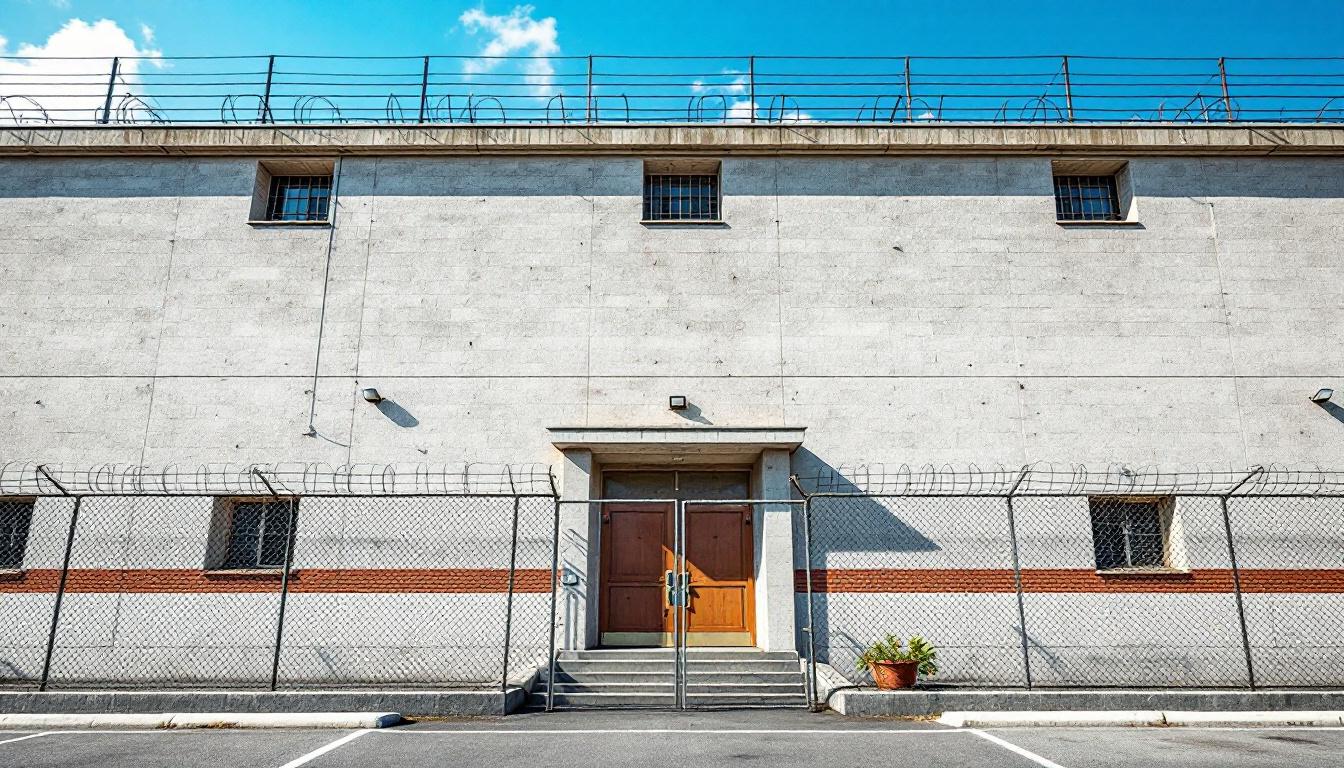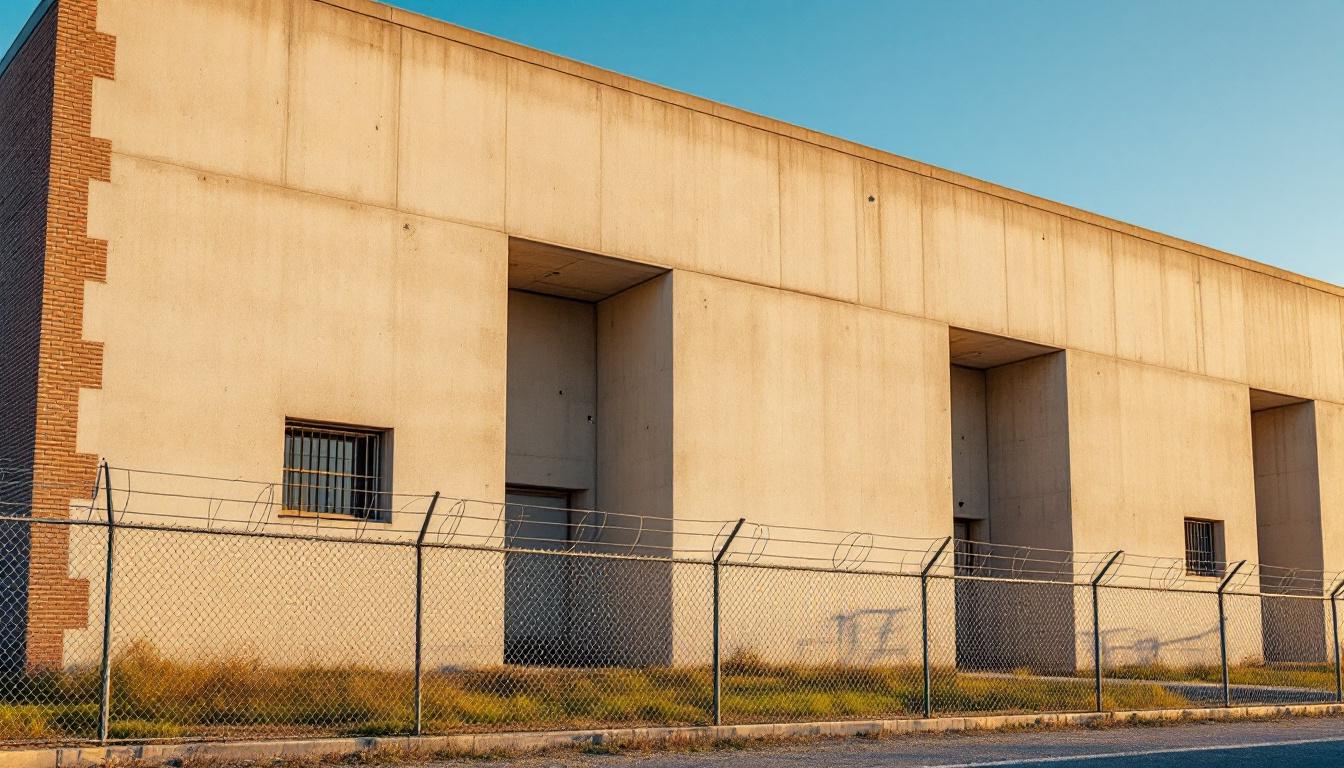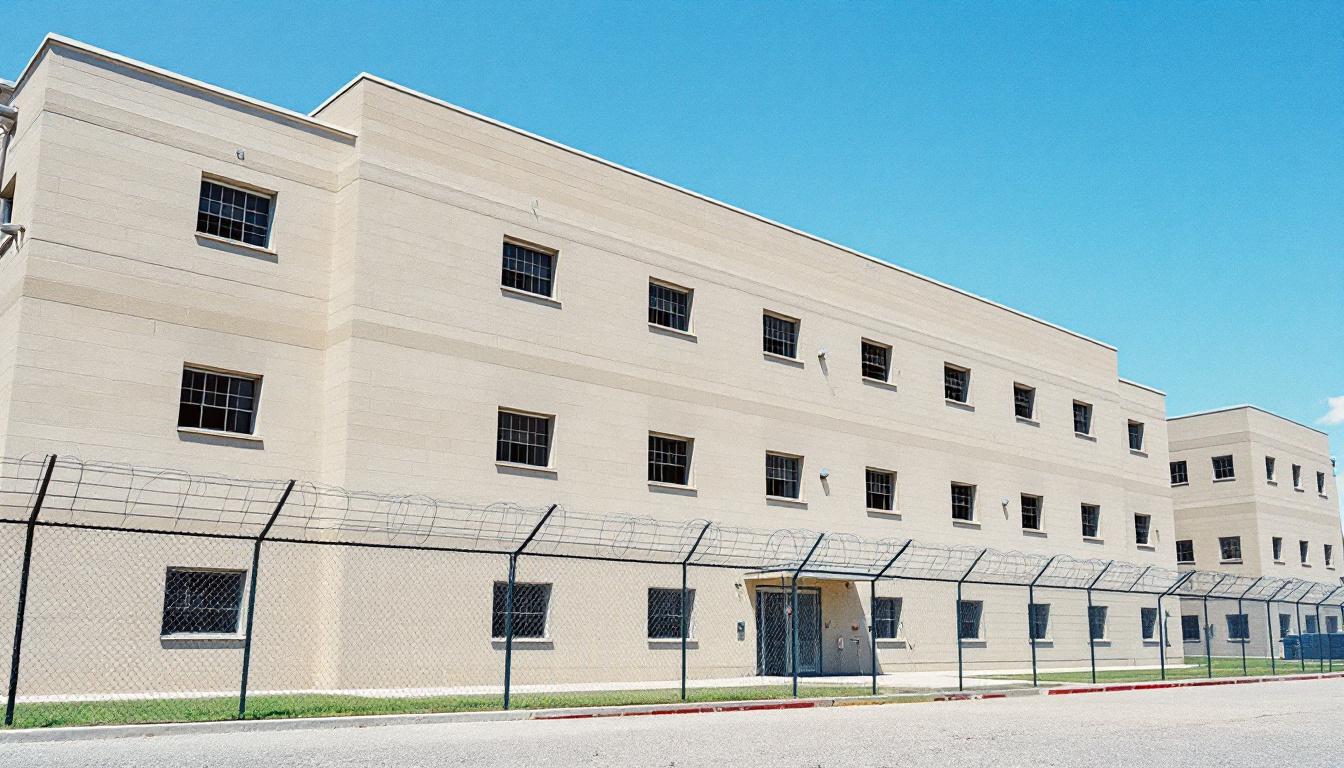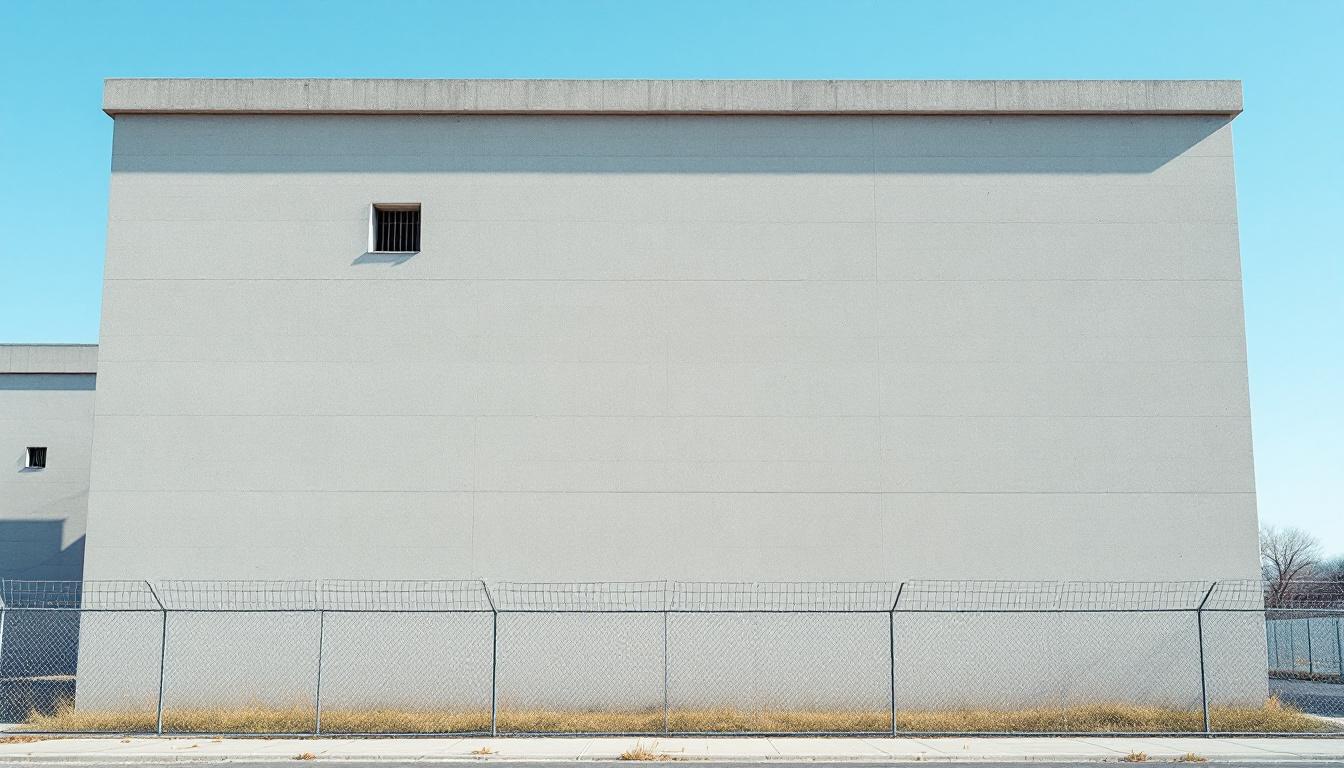
Quick Navigation
How to contact an inmate at Rufe Jordan Unit Pampa
This comprehensive guide will walk you through how to connect with an inmate at Rufe Jordan Unit Pampa. Follow the steps below to find an inmate and send letters and photos:
- Search for the inmate using our search tool below
- Create your account or log in to Penmate
- Write your message (up to 6,000 characters)
- Send instantly - inmates receive printed copies daily
Find an Inmate
Search for an inmate to start communicating today
Tip: You can search by first name, last name, or inmate ID number
To contact a person at Rufe Jordan Unit Pampa start by searching for the person on the facility website. Perform a search by following these steps:
- Step 1: Enter their first name and last name into the search form and click "Search"
- Step 2: Locate their inmate record
- Step 3: Write down their Inmate ID and any housing information provided
Important! Be sure to enter the person's full name. Nicknames should not be used.
How to Send Messages to Inmates

You can use your phone or computer to send emails, letters, and photos to an inmate. Messages are sent electronically to inmate tablets or kiosks at the facility. If you would like to send a message, start by searching for an inmate at Rufe Jordan Unit Pampa.
Sending Photos and Postcards

A great way to send love and support to a loved one at Rufe Jordan Unit Pampa is to send photos and postcards. It only takes a few minutes to send photos from your phone and it makes a huge difference. You can also mail postcards with words of support and inspiration, or design your own postcard for special moments like birthdays and holidays.
Important! Be sure not to send any explicit photos or they may not be approved by the facility. You can also use a photo printing app like Penmate to make sure your photos are printed at the correct size (4x6 or 3x5) and are mailed according to the rules and regulations of Rufe Jordan Unit Pampa.
Frequently asked questions about Rufe Jordan Unit Pampa
-
How long does it take to deliver a message?
If you're sending an email message your letter is usually delivered within 24-48 hours. For messages sent via mail you should expect delivery within 3-7 days. All messages will need be approved by Rufe Jordan Unit Pampa.
-
How much does it cost to send a message to Rufe Jordan Unit Pampa?
You can send a message free using your phone or mail a message via USPS for the price of a $0.60 stamp and envelope. You can also purchase credits or e-stamps from services starting at $1.99.
-
What services can I use to contact an inmate at Rufe Jordan Unit Pampa?
Penmate
You can use Penmate to send letters and photos to an inmate from your phone. It's an easy way to stay in touch during your loved one's incarceration. Use the inmate locator to find an inmate's location and contact information, then you can send messages within a few minutes.
Securus messaging
Securus may be another option for communicating with an inmate at Rufe Jordan Unit Pampa. You can create a friends and family account and purchase credits to send messages. All messages will be reviewed and must be approved by the facility.
JPay
Some county jails and state prisons may support sending messages with JPay. You must register an account with the system, find your loved one, and purchase stamps to send messages. For some locations you can also attach photos.
Smart Jail Mail
You may also check if Smart Jail Mail is available at Rufe Jordan Unit Pampa. Smart Jail Mail is operated by Smart Communications and has contracted with some state and county jails. After purchasing credits, your messages and photos are sent to the facility, printed out, and then handed out to your loved one.
-
What is the mailing address of Rufe Jordan Unit Pampa?
Mailing address:
Rufe Jordan Unit Pampa
1992 Helton Rd
Pampa, TX 79065
Business hours:
- Monday: Open 24 hours
- Tuesday: Open 24 hours
- Wednesday: Open 24 hours
- Thursday: Open 24 hours
- Friday: Open 24 hours
- Saturday: Open 24 hours
- Sunday: Open 24 hours
-
What are the visiting hours at Rufe Jordan Unit Pampa?
Visiting hours at Rufe Jordan Unit Pampa vary by housing unit and security level. Generally, visits are scheduled on weekends and holidays, with some facilities offering weekday visits. Contact the facility directly for the current visiting schedule. Visits typically last 30-60 minutes and must be scheduled in advance.
-
What items are prohibited when sending mail to Rufe Jordan Unit Pampa?
Prohibited items typically include: cash, personal checks, stamps, stickers, glitter, glue, tape, staples, paperclips, polaroid photos, musical or blank greeting cards, hardcover books, magazines with staples, and any items containing metal or electronics. Only send letters on plain white paper with blue or black ink. Photos must be printed on regular photo paper (no Polaroids). Always check with Rufe Jordan Unit Pampa for their specific mail policies.
-
How do I send money to an inmate at Rufe Jordan Unit Pampa?
You can send money to an inmate at Rufe Jordan Unit Pampa through several methods: 1) Online using JPay, Access Corrections, or the facility's approved vendor, 2) Money orders mailed directly to the facility with the inmate's name and ID number, 3) Kiosks located in the facility lobby, or 4) Over the phone using a credit or debit card. Fees vary by method, typically ranging from $2.95 to $11.95 per transaction.
-
Can I schedule a video visit with an inmate at Rufe Jordan Unit Pampa?
Many facilities now offer video visitation as an alternative to in-person visits. At Rufe Jordan Unit Pampa, video visits may be available through services like Penmate, Securus Video Connect, GTL, or ICSolutions. Video visits typically cost $10-20 for 20-30 minutes and must be scheduled in advance. You'll need a computer or smartphone with a camera and reliable internet connection. Contact the facility for their specific video visitation policies and approved vendors.
-
What identification do I need to visit an inmate at Rufe Jordan Unit Pampa?
All visitors must present valid government-issued photo identification such as a driver's license, state ID, passport, or military ID. Minors must be accompanied by a parent or legal guardian who can provide the minor's birth certificate. Some facilities require visitors to be on the inmate's approved visitation list, which may require a background check. Contact Rufe Jordan Unit Pampa for specific ID requirements and visitor approval procedures.
-
How can I find out an inmate's release date?
To find an inmate's release date at Rufe Jordan Unit Pampa, you can: 1) Use the online inmate search tool if available, 2) Call the facility's records department, 3) Contact the inmate's case manager or counselor, or 4) Have the inmate provide this information during a call or visit. For privacy reasons, some facilities only release this information to immediate family members.
Facility Overview
Contact Information
Rufe Jordan Unit Pampa1992 Helton Rd
Pampa, TX 79065

About Rufe Jordan Unit Pampa
Correctional facilities throughout Texas serve as integral components of the state's criminal justice framework, designed to balance public safety objectives with evidence-based rehabilitation initiatives. Within this comprehensive system, Jordan Unit operates as a TX correctional facility positioned in the Dallas metropolitan area, where the population services extend beyond traditional incarceration to encompass structured programming aimed at reducing recidivism and supporting successful community reintegration.
The facility typically maintains operational standards consistent with state correctional protocols while addressing the diverse needs of individuals within its custody. Programming efforts generally focus on educational advancement, vocational skill development, and behavioral intervention services that may include substance abuse treatment and mental health support. These initiatives often emphasize preparing residents for eventual return to Dallas-area communities through practical life skills training and family reunification support services.
Jordan Unit's role within the broader Texas correctional system reflects the state's commitment to implementing rehabilitation-focused approaches that contribute to long-term public safety outcomes. The facility generally coordinates with regional social service organizations and educational institutions to provide continuity of care and support networks that extend beyond release. Through structured daily routines, supervised work assignments, and progressive programming opportunities, the institution typically works to address underlying factors that contribute to criminal behavior while maintaining secure operations that protect both staff and the surrounding Dallas community.
Programs & Services
Through comprehensive support services, the population at Jordan Unit receives assistance designed to address multiple aspects of personal development and successful reintegration. The facility's approach typically centers on providing structured opportunities that help individuals build essential life skills while addressing underlying challenges that may have contributed to their incarceration. These programs often emphasize community connection and family strengthening, recognizing that sustainable change requires both personal growth and solid support networks upon release.
Educational and vocational programs form a cornerstone of the supportive services available to the population. Special education services may supply individualized learning plans for those requiring additional academic support, helping participants develop fundamental literacy and numeracy skills. Also, vocational training programs typically offer hands-on instruction in practical trades, including plumbing certification courses that provide marketable skills for post-release employment opportunities. These educational initiatives often include flexible scheduling to accommodate various learning needs and backgrounds.
The facility's therapeutic and support programs address both immediate needs and long-term stability for participants. Anger management programs may offer structured group sessions and individual counseling to help the population develop healthy coping strategies and conflict resolution skills. Work programs typically provide opportunities for skill development while contributing to facility operations, fostering a sense of responsibility and routine. Also, faith-based initiatives often include chaplaincy services and spiritual programming for those seeking religious support. Additionally, domestic violence programs may supply specialized counseling and education designed to break cycles of harmful behavior and promote healthy relationship patterns within families and communities.
Daily Life & Visitation
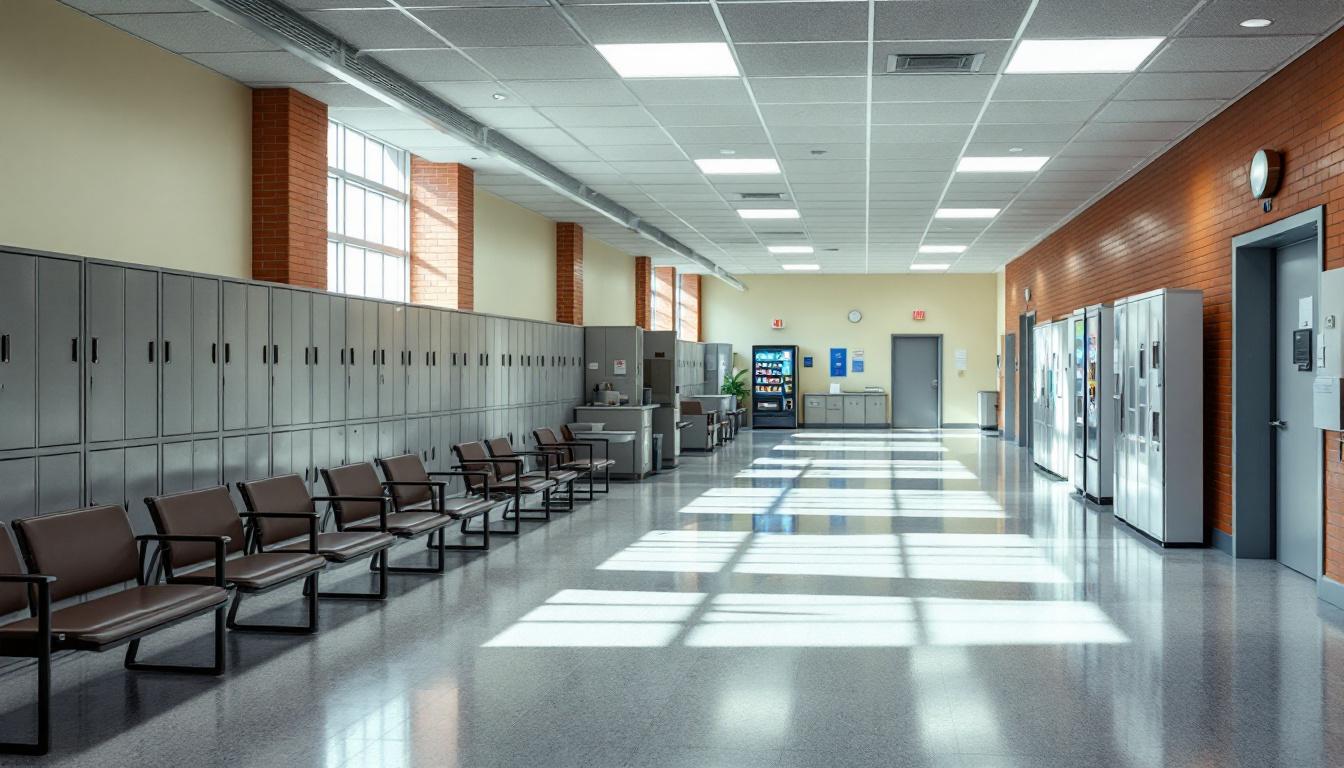
Structured routines and established protocols shape every aspect of the experience for the population at Jordan Unit, creating a framework that currently governs movement, activities, and interactions throughout each day. The facility continues to operate on a regimented schedule that typically begins with early morning counts and extends through evening lockdown procedures. Generally, the population follows set meal times, work assignments, and recreational periods that supply predictability and order to daily life.
Housing arrangements typically place residents in dormitory-style units or cells, depending on classification levels and security requirements. The population usually shares common areas for dining, where meals are served at designated times in a central cafeteria setting. Personal property allowances may include basic necessities and approved items that can often be purchased through the commissary system. Also, living spaces generally accommodate multiple residents, with shared bathroom facilities and common areas that facilitate supervised interaction among the population.
Structured programming schedules supply educational opportunities, vocational training, and recreational activities that help fill the daily routine. Work assignments typically include kitchen duties, maintenance tasks, and facility operations that provide structure while teaching valuable skills. However, family connections remain vital through scheduled visitation periods and approved communication methods such as phone calls and correspondence. The population generally has access to outdoor recreation areas and indoor activities that promote physical fitness and social interaction within the facility's guidelines.
Ready to Connect?
Start communicating with your loved one today
Search for an Inmate
